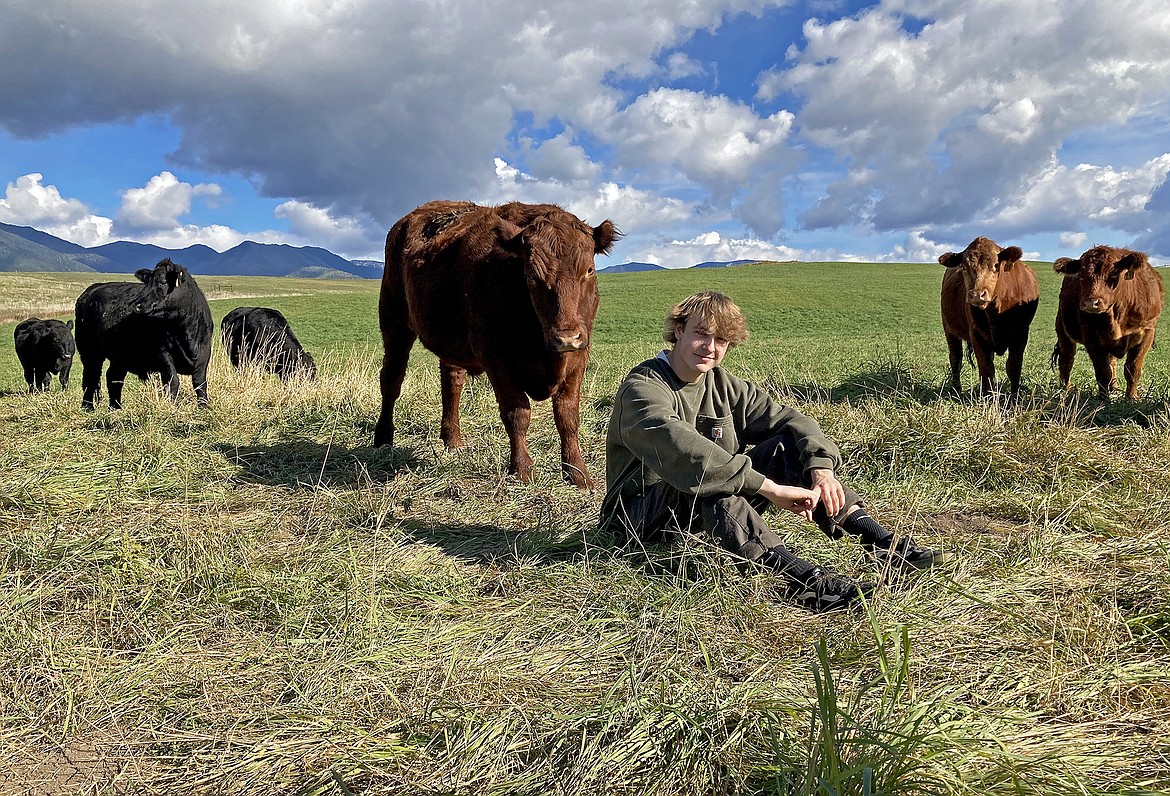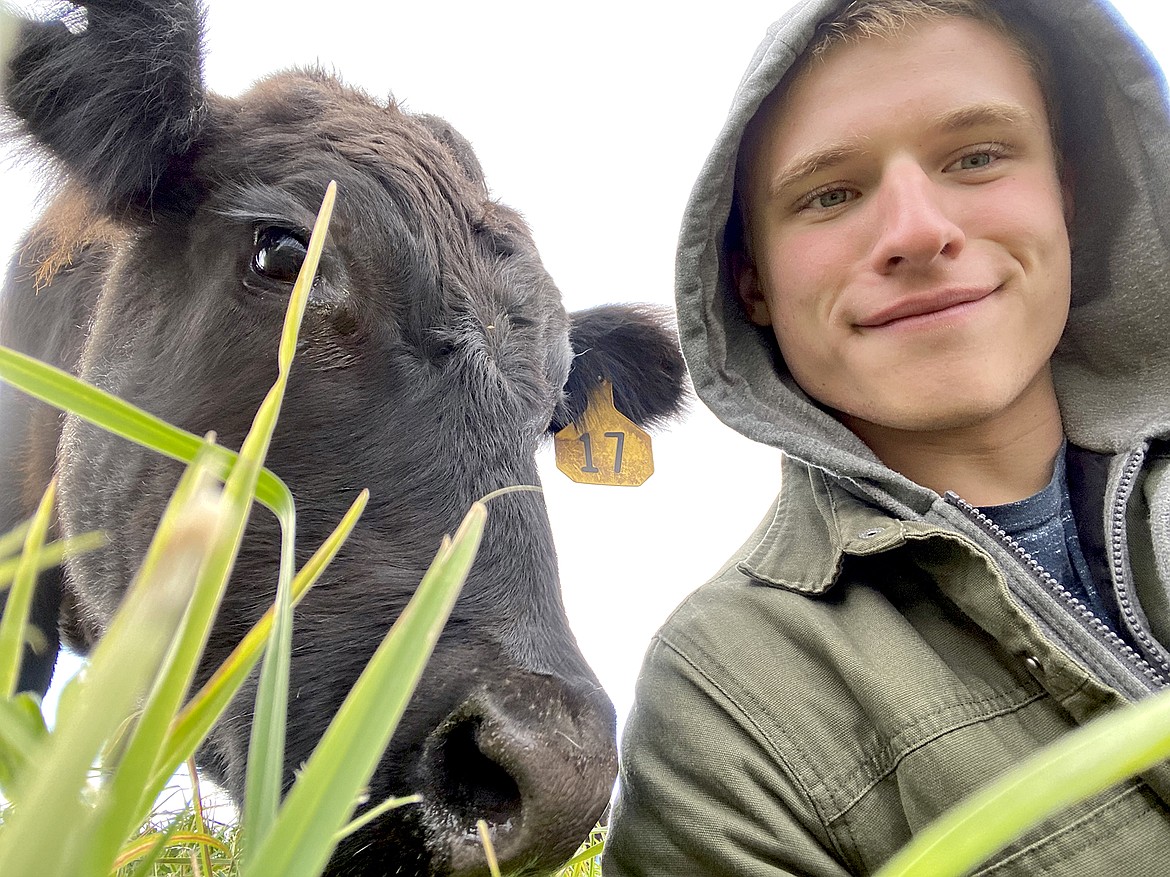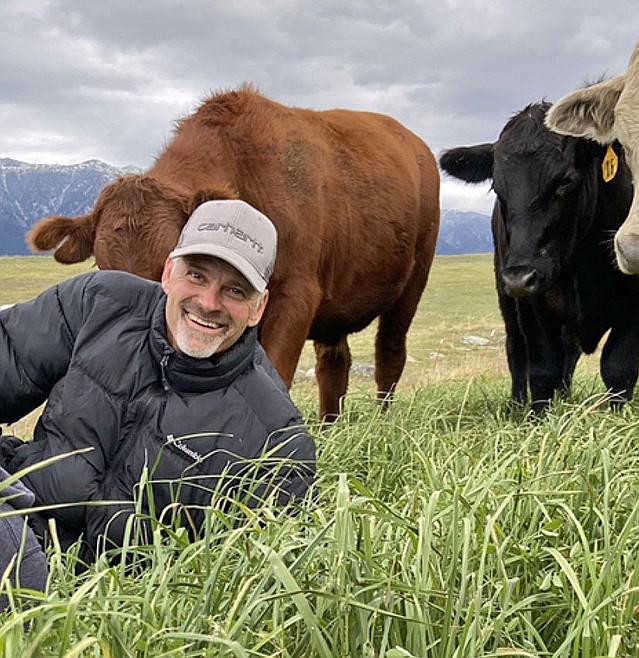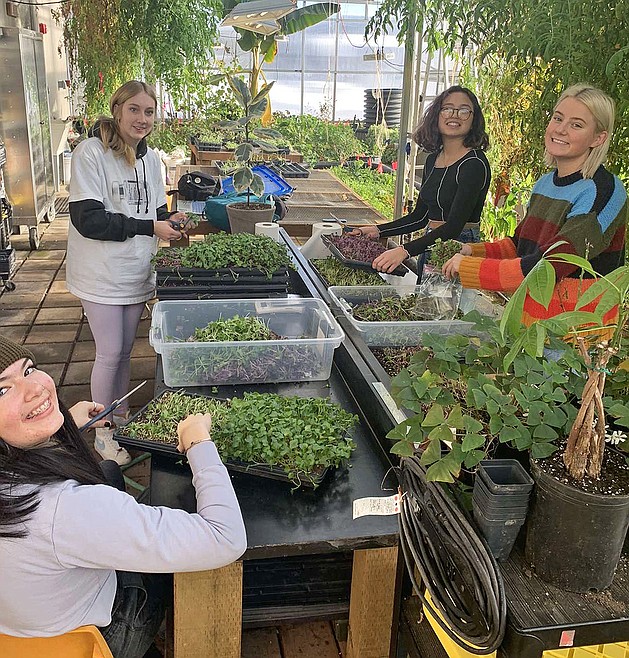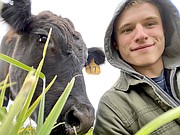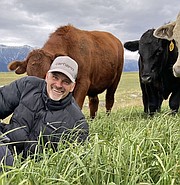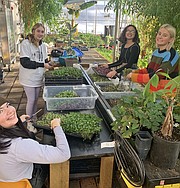Regenerative Agriculture program takes classroom outside school walls
The Regenerative Agriculture program at Whitefish High School is more than an educational class — it’s creating positive change in students by encouraging entrepreneurship and helping them discover their own worth.
Three years ago high school teacher Mark Casazza got the green light to make his passion become his career. He spent 27 years as a math teacher while running a program on the side that hired students to work both in construction and on his family’s 700-acre ranch in Eureka. He has now morphed that side project into a bustling class offered to high school juniors and seniors.
“What I did on the weekends over the summer because I loved it, I now do here – my passion became my job,” Casazza said.
In the Regenerative Agriculture program, Casazza sees himself more as a job coach than a teacher. At the beginning of the school year, students in the class brainstorm projects that they would like to pursue. Students with similar interests become a group and the project they decide on is the focus for the rest of the year and is run like a business.
Through the Regenerative Agriculture class, students have successfully created businesses including selling microgreens, marketing grass-finished beef and building a vegetable trailer to use for produce sales this summer.
One student, senior Kenna Ferril, took on the responsibility of overseeing all the projects and heading up marketing, website design, creating presentations and more — all valuable skills that he learned on his own through this class and a path he now wants to pursue after graduation.
“This class has singlehandedly helped me look at my future and figure out what I want to do with my life more than any of the other classes I've done in my entire high school experience,” Ferril said.
The students in this class have essentially become business owners and have created their own products, production processes, marketing and sales; the students also are paid through a stipend from the school district while earning school credit. That is on the top of Ferril’s list of highlights from taking this course.
“I think the coolest thing for me is that kids are making money in school because that’s unheard of... we’re learning things and making money for it,” Ferril said. “I think that’s amazing.”
The independent projects give students the opportunity to learn new skills ranging from product development to online marketing management. In the Regenerative Agriculture program, students choose the project they are most passionate about and get to pursue that while seeing the creation of a real business all the way through.
And as these businesses are created, the students feel supported and encouraged, and become a family within the school.
“It’s more than just people that you work with and kids in a class – we're a family,” Ferril says. “We can come together and talk about the things that matter.”
CASAZZA BEGAN pursuing a program that would help kids who were dropping out of school find purpose through working hard at a job. He started hiring students from Whitefish High School who were struggling and the students would work on the ranch or construction.
“What I found was lots of times these kids that struggled in school, because they had a tough time sitting in a classroom, were actually amazing workers because they had so much energy,” Casazza recalled. “You get them out on a job site, and they were just excited to get to work.”
He trained the students how to be successful on a job site and would pay each student a different wage daily based on how well they performed. The criteria the wage was based on included how well they paid attention, safety, attitude and accountability.
“The strength of the program was I would pay every kid a different wage every day,” Casazza expressed, saying that the kids would want to find out how they could make more money and then would work harder in their job.
"Money is an incredible motivator…” he added. “I found out if a kid really wanted to learn, I could turn them into a pretty strong worker in two weeks.”
For nine years he independently ran this program on weekends and during the summer. In just the past three years it has finally become his primary job at WHS.
“In my class, I teach students skills in construction, agriculture and business that are applicable long after high school,” he says.
When he first started this side project he could take on four students; next year the class will have 40 students and it has doubled over the course of one year.
Additionally, the Regenerative Agriculture class is teaching students skills they can use after high school and in turn is filling a need in Whitefish as most businesses are currently facing a workforce shortage.
“We’re filling a job shortage in Whitefish; our goal is to fill over 40 jobs by next year in our community,” Casazza said. “And it’s so needed for our community, for these kids to get out and learn a skill they want to do after high school, but also fill a need for Whitefish.”
ONE OF the most intriguing business ideas some students in the Regenerative Agriculture program chose to take on this year is the grass-finished beef project. Casazza has his own portion of a 700-acre family ranch in Eureka and he’s been taking kids up there for hands-on learning opportunities for years.
The students go to the ranch on field trips as well as for summer programs and learn about ranching — in particular how to create a great tasting grass-fed, grass-finished beef product that sells before it even hits the market.
Casazza teaches the kids a more natural approach to ranching and his cattle are free-range fenced by the old school method of salt blocks.
“It’s pretty cool – it's the old style, there’s no fence,” he said.
The beef produced by Casazza’s tried-and-true method is from cows raised without growth hormones, or antibiotics and are 100% grass-fed.
“It’s as healthy as wild game. It will actually raise your Omega-3s, raises your good fats and lowers your bad fat,” he said.
As part of the grass-finished beef project, students have had the opportunity to learn this process as well as how to butcher and sell the beef. They have marketed the products to Markus Foods and Third Street Market among other local businesses, all while getting paid as if it were any regular business.
Additionally this year the class started a food depot license for the district which allowed the school district to buy three steers and use the hamburger in the cafeteria. Then the district can sell the more expensive cuts and in return, it pays for a good portion of the beef to feed the kids.
“We’ve really created an incredible product,” Casazza said.
The program has seen great success selling the beef locally, and in Markus Foods they even have a presentation playing that depicts how the students created the product.
Casazza has seen growth in all his students throughout the course of the year, and is always looking for ways to improve the lives of his students through the program. This started out years ago as a way to help kids struggling, sometimes in school and sometimes in life, and to this day he stands by the same principles of giving kids something to focus on and care about.
“You just give them something that they’re passionate about, it changes their outlook,” he said.
For more information about the Regenerative Agriculture program and how to buy student-produced products, visit https://whsregenerativeag.com/

